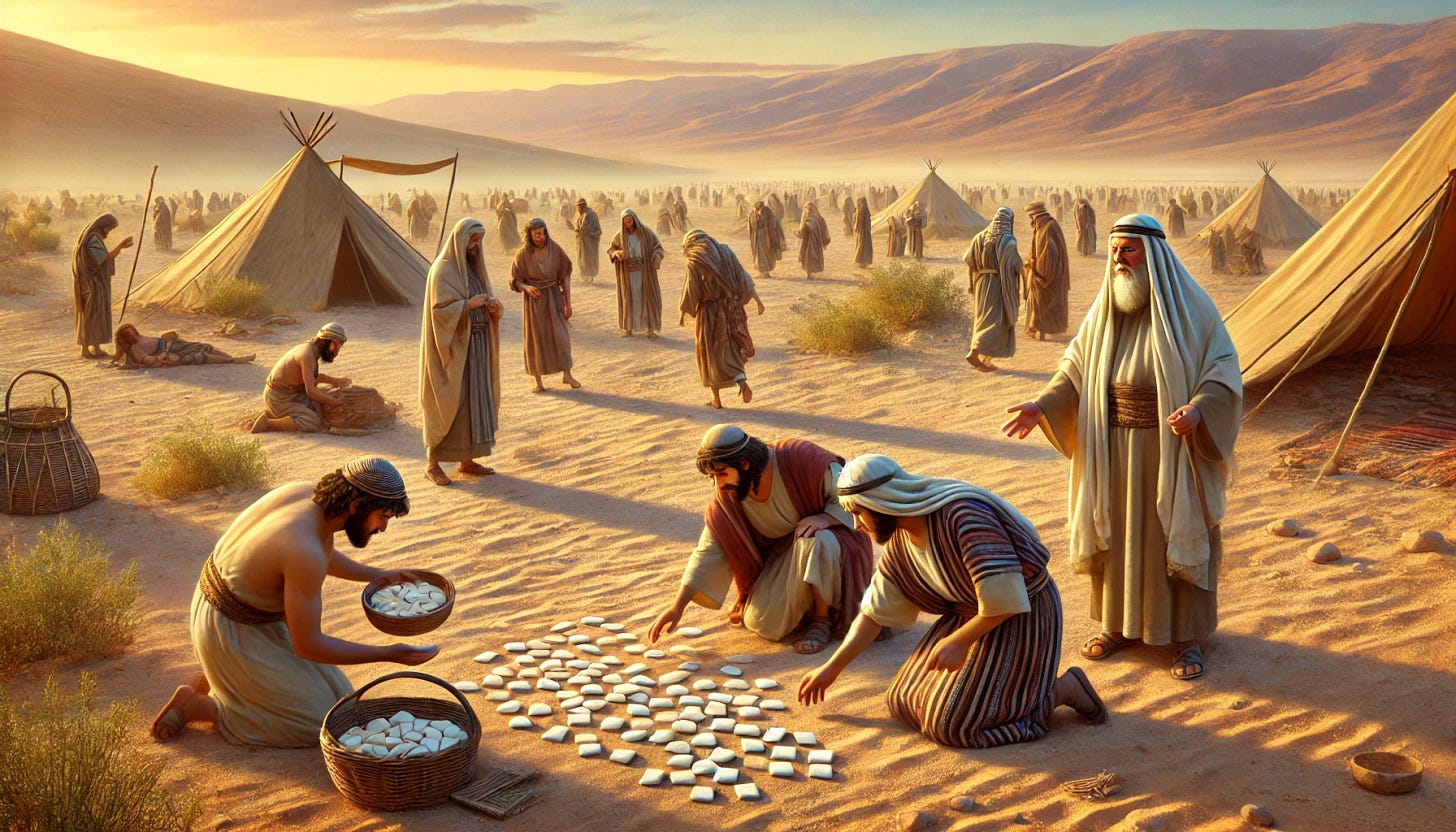After the Jews left Egypt by the Exodus, they began complaining that it would’ve been better to die in Egypt than to wander in the desert and slowly succumb to starvation.
“Would that we had died by the hand of the Lord in the land of Egypt, when we sat by the meat pots and ate bread to the full, for you have brought us out into this desert to kill this whole assembly with hunger” (Exodus 16:3).
After Moses asked the LORD (YHWH) for help, the LORD promised to send “manna from heaven” every morning for the Israelites to eat.
If you ask, “What is manna?” There is no good answer because even the people who picked it up in the morning and ate it during the day asked, “What is it?”
The Hebrew word “manna” literally means “What is it?”
Though God’s people couldn’t tell what it was, the LORD provided it to satisfy their hunger and nourish their bodies.
However, the Jews were only to pick up enough manna to last them for the day. They were to …
Keep reading with a 7-day free trial
Subscribe to Wade Burleson at Istoria to keep reading this post and get 7 days of free access to the full post archives.





